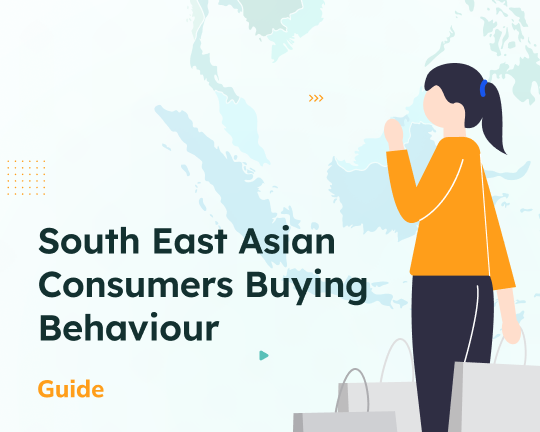The marketing industry in Singapore, also known as the most developed market of the South East Asian region pulsates with energy and creativity, constantly adapting to the evolving landscape of Singaporean consumer behaviour, technology, and globalisation. Despite its geographical scale and compact population, it has emerged as a prominent e-commerce hub in the Asia-Pacific (APAC).
In this article we will uncover the challenges marketers face and the aspects that differentiate this market.
1. Striving in competition
Did you know?
Singapore is ranked 2nd Globally in the World Bank’s Ease of Doing Business Index.
Source: The World Bank, 2019
Singapore’s status as a regional business hub attracts companies from across the globe, leading to a highly competitive marketing landscape. Domestic firms compete with multinational corporations for market share, driving innovation and raising the bar for marketing excellence. To stand out in this competitive environment, marketers must continuously refine their skills, stay updated on industry trends, and deliver exceptional results. For marketing teams, upgrading skill sets and collaborating with tech partners is critical for harnessing change. This proactive approach is vital for harnessing the change instead of merely adapting to it.
2. Leading in digital
Like many other parts of the world, Singapore has witnessed a significant shift towards digital marketing. With a tech-savvy population and high internet penetration rates, digital platforms have become the cornerstone of marketing strategies. Social media, search engine optimisation (SEO), content marketing, and influencer partnerships are just a few of the avenues through which marketers engage with consumers in Singapore.
The most demanded skills and competencies for marketing professionals in Singapore are:
- Data Analytics: for identifying trends, measuring campaigns performance, and strategies optimisation.
- Content Creation: to create engaging contents from articles and captions to graphic designs and video production in order to capture and retain leads attention in the digital space.
Digital Strategising: possess good understanding of the digital landscape, ability to identify opportunities, and craft plans that leverage the right mix of digital channels to desired ROI.
3. Saturation of digital channels
The characteristics mentioned above are not only bringing big opportunities but also big challenges. As competition intensifies, capturing the attention of consumers amidst the informational noise becomes increasingly difficult. Marketers must constantly innovate and personalise their strategies to cut through the clutter and resonate with their target audience. Personalisation may seem as the best way to attract the target audience, however, privacy concerns and data regulations such as the Personal Data Protection Act (PDPA) are adding a layer of complexity to marketing efforts. Balancing the need for personalised experiences with respect for consumer privacy is a delicate tightrope that marketers must walk.
4. Cultural sensitivities and diversity
Did you know?
78% of consumers in Singapore consider diversity and inclusion important to them.
Source: Campaign, 2023
Singapore’s multicultural society presents both opportunities and challenges for marketers. While diversity enriches the market, it also requires a nuanced approach to messaging and branding. Understanding the cultural nuances and preferences of different demographic segments is crucial for effective communication. Singaporean marketers tailor their strategies to resonate with the diverse population, which includes Chinese, Malay, Indian, and expatriate communities. Therefore new brands and marketers entering the country may find it challenging to adjust strategies that have worked in other less diverse settings.
What differentiates marketing in Singapore?
While Singapore shares similarities with other markets in Southeast Asia, several factors distinguish it from its neighbours.
- Status as a global financial and commercial hub that grants marketers access to a diverse pool of talent and resources. The presence of multinational corporations and leading marketing agencies fosters a culture of innovation and excellence.
- Emphasis on education and skills development ensures that its workforce remains at the forefront of industry trends. The Singaporean government’s support for training programs and initiatives promotes continuous learning and professional growth within the marketing community.
- Singapore’s reputation for efficiency and reliability enhances its appeal to international brands seeking to establish a presence in the region. The city-state’s robust infrastructure, stable political climate, and business-friendly regulations make it an attractive destination for investment and expansion.
Conclusion
The marketing field in Singapore presents vitality and digital innovation, cultural variety, and strong competition fueled by attractiveness of the market. To thrive in this arena, marketing experts continually focus on enhancing their skills to navigate the abundant career prospects. Singaporean marketers have overcome the basic requirements for marketing professionals and are now facing next-level challenges brought by digital transformation.
What's next for you?
CRM and Marketing Automation systems are essential for businesses to stay competitive in highly-competitive markets like Singapore. However, simply implementing a new software tool is not enough. In order to truly leverage the benefits of Customer Relationship Management (CRM) and Marketing Automation systems, it is important to fully adopt the product for the needs of your business.
Whether you’re starting your business in Singapore or operating in other SEA markets, “Lead Gen and CRM” by Constant Contact ensures that you track your customers’ data and generate more sales opportunities than before. Find out how “Lead Gen and CRM” can advance your business.





